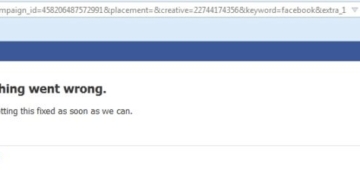Editor’s note: Big Tent Ideas always aims to provide balancing perspectives on the hottest issues of the day. Below is a column from Tori Hirsch, where she argues that the Kids Online Safety Act (KOSA) is both necessary and overdue, and that conservative skepticism of it is misplaced. You can find a counterpoint here, where Taylor Millard argues that KOSA will allow a European-style speech control framework to be instituted on US shores.
A 16-year-old boy dies by suicide after being sexually extorted by a predator on Instagram.
A 14-year-old girl, bombarded with pro-eating disorder content on TikTok, becomes so ill that she has to go on a feeding tube for months.
A 15-year-old girl is raped by a 32-year-old man who groomed her on Snapchat.
These horror stories are becoming more prevalent in our digital age. Predators have easy access to children on social media and other tech platforms and powerful algorithms have been revealed to feed harmful content to children and teens on an endless and addictive loop.
Digital platforms are dangerous by design.
Technology’s Achilles’ heel is that the tech industry did not set out to design their products with safety in mind. The industry has primarily introduced products and platforms to great fanfare but then appear to get surprised by vulnerabilities that have caused harm to users, and especially to children. Some tech companies have added safety features after these harms are brought to their attention. And some tech companies have been terribly slow or unresponsive to frequent requests for improvements despite known harms. (Here’s looking at you, Meta.)
This is why we at the National Center on Sexual Exploitation and other child safety advocates have pushed hard for Congress to pass the recently reintroduced Kids Online Safety Act (KOSA) and other online child protection measures. KOSA implements a legal “duty of care” to require, not suggest, that tech platforms design their products in a way that protects children, or otherwise face liability. KOSA also requires that tech platforms and companies design their products with safety features ON by default for children. This is important because currently when tech platforms do provide safety features, they are usually OFF by default.
Ultimately, KOSA will help protect children from the massive amount of online harm, including child sexual exploitation, suicide instruction, harassment, and promotion of eating disorder content, to which children, especially those who are vulnerable and marginalized, are currently exposed.
The momentum for KOSA has been growing since the January 31, 2024, hearing with CEOs of Meta, Discord, Reddit, TikTok, and X that further exposed these platforms’ lack of safety.
During this hearing, many of these company leaders claimed their platforms were safe, but the reality is much different. Meta CEO Mark Zuckerberg claimed “we used industry standards to detect [predatory content]” but Meta has never proactively monitored direct messaging for grooming behavior, instead, monitoring after reports were made. Discord co-founder Jason Citron touted the platform’s “teen safety assist” feature but NCOSE tested this feature, finding it was not yet fully implemented.
Zuckerberg was forced to apologize to families whose children lost their lives through social media challenges, sextortion, or access to illegal drugs through social media platforms, underscoring the point that tech platforms must do more to protect children online.
Liability for internet companies is way overdue for the harms that stem from the way their platforms are designed, so Congress must take creative — and legal — approaches to regulating these companies.
Some critics claim that KOSA would impose a European-style regulatory framework on U.S. internet companies. However, KOSA’s provisions are enforced by the Federal Trade Commission, which makes sense given it enforces consumer protection laws across the nation’s largest industries. Tech companies have fought tooth and nail to prevent a private right of action and prevent state Attorney General enforcement, so agency regulation is the only other option.
Every country must create laws to protect its most vulnerable citizens. When children live so much of their lives online, safeguards cannot be optional. Big Tech has time and again shown that it will not make changes unless they are forced to come to the table by being regulated and facing liability for their actions. It’s time for Congress to pass the Kids Online Safety Act.
Tori Hirsch is legal counsel for the National Center on Sexual Exploitation, the leading national non-profit organization exposing the links between all forms of sexual exploitation such as child sexual abuse, prostitution, sex trafficking and the public health harms of pornography.
The views and opinions expressed in this commentary are those of the author and do not reflect the official position of the Daily Caller News Foundation.
All content created by the Daily Caller News Foundation, an independent and nonpartisan newswire service, is available without charge to any legitimate news publisher that can provide a large audience. All republished articles must include our logo, our reporter’s byline and their DCNF affiliation. For any questions about our guidelines or partnering with us, please contact [email protected].



























 Continue with Google
Continue with Google